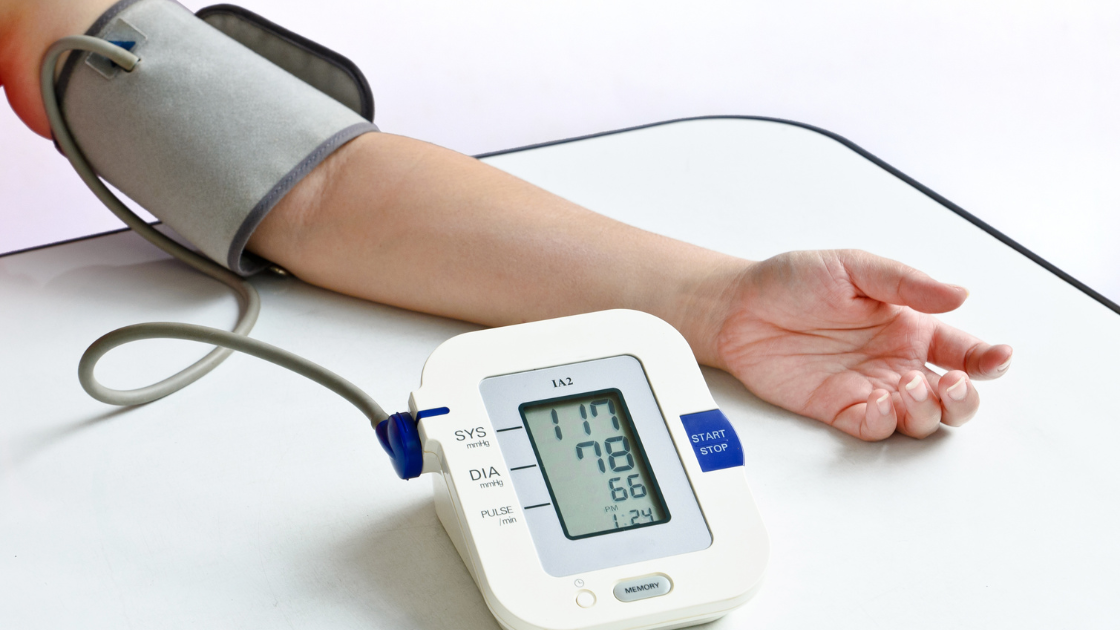Understanding Blood Pressure Readings: What Every Number Means

Blood pressure is a key indicator of cardiovascular health, yet many people are unsure about what their readings mean. Understanding these numbers is crucial for maintaining overall well-being and detecting potential health risks early. Whether you are undergoing a health screening in Singapore or simply keeping track of your health, this guide will help you decode your blood pressure readings and take the necessary steps toward better health.
What Is Blood Pressure?
Blood pressure is the force exerted by blood against the walls of the arteries. It is measured in millimeters of mercury (mmHg) and consists of two numbers:
- Systolic Pressure (Top Number): The pressure in your arteries when your heart beats.
- Diastolic Pressure (Bottom Number): The pressure in your arteries when your heart is at rest between beats.
Blood Pressure Categories and What They Mean
| Blood Pressure Category | Systolic (mmHg) | Diastolic (mmHg) |
|---|---|---|
| Normal | Less than 120 | Less than 80 |
| Elevated | 120-129 | Less than 80 |
| Hypertension Stage 1 | 130-139 | 80-89 |
| Hypertension Stage 2 | 140 or higher | 90 or higher |
| Hypertensive Crisis | Higher than 180 | Higher than 120 |
Normal Blood Pressure
A reading below 120/80 mmHg is considered normal. This means your cardiovascular system is functioning well, and your risk of heart disease, stroke, and kidney problems is low.
Elevated Blood Pressure
A systolic pressure between 120-129 mmHg with a diastolic pressure under 80 mmHg indicates an elevated blood pressure. While not classified as hypertension, it signals the need for lifestyle changes to prevent further increases.
Hypertension (High Blood Pressure)
Hypertension is classified into two stages:
- Stage 1 Hypertension: 130-139/80-89 mmHg. Doctors may recommend lifestyle changes and, in some cases, medication to lower the risk of heart complications.
- Stage 2 Hypertension: 140/90 mmHg or higher. This requires immediate intervention, including medication and significant lifestyle modifications.
Hypertensive Crisis
If your blood pressure exceeds 180/120 mmHg, it is a medical emergency that requires immediate attention. Seek medical help if you experience symptoms like chest pain, difficulty breathing, or confusion.
The Impact of High Blood Pressure on Health
High blood pressure can lead to serious health complications such as:
- Heart disease – Increased strain on the heart can lead to heart attacks or heart failure (American Heart Association).
- Stroke – High blood pressure is a major risk factor for strokes (Centers for Disease Control and Prevention).
- Kidney disease – Uncontrolled hypertension can damage kidney function (National Kidney Foundation).
How to Manage Your Blood Pressure
Maintaining healthy blood pressure is essential for reducing the risk of serious health issues. Here are some steps you can take:
1. Regular Health Screenings
Undergoing a full body checkup in Singapore helps monitor your blood pressure and detect any underlying conditions early. HOP Singapore offers comprehensive corporate health screening and personal health assessments.
2. Maintain a Healthy Diet
A diet rich in fruits, vegetables, whole grains, and lean proteins can help lower blood pressure. Reducing salt intake and avoiding processed foods can also be beneficial. The Harvard T.H. Chan School of Public Health provides insights into how sodium affects blood pressure.
3. Stay Active
Engaging in regular physical activity, such as brisk walking, jogging, or yoga, can help regulate blood pressure and improve heart health. The World Health Organization recommends at least 150 minutes of moderate exercise per week.
4. Manage Stress
Chronic stress contributes to high blood pressure. Mindfulness practices, deep breathing exercises, and adequate sleep can help manage stress levels.
5. Monitor Your Blood Pressure at Home
Keeping track of your blood pressure at home ensures early detection of any abnormalities. If your readings consistently fall outside the normal range, consult a healthcare professional.
Where to Get a Blood Pressure Check in Singapore
If you’re concerned about your blood pressure, getting checked regularly at a reliable medical facility is important. HOP Singapore offers health screening SG services, including blood pressure assessments and in-depth cardiovascular evaluations. You can book an appointment for a full health screening at:
- HOP Singapore – Comprehensive health screening packages.
- HOP Executive Health Screening – Advanced screenings for professionals.
- HOP Radiology Services – Specialized tests, including ECG and ultrasound.
Additional Resources
For more information on blood pressure and heart health, visit these trusted sources:
- Health Promotion Board Singapore – Guidelines on maintaining a healthy lifestyle.
- Ministry of Health Singapore – Official health policies and resources.
- American Heart Association – Expert insights on managing high blood pressure.
- National Institute on Aging – Information on blood pressure and aging.
Take Charge of Your Heart Health Today
Understanding what your blood pressure readings mean empowers you to take proactive steps in maintaining your health. Regular health screening in Singapore, lifestyle modifications, and professional medical guidance can help you manage your blood pressure effectively.
Schedule your next corporate health screening or full body checkup in Singapore with HOP Singapore today to stay ahead of potential health risk
